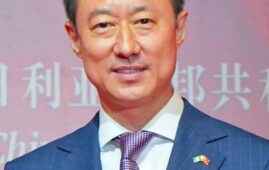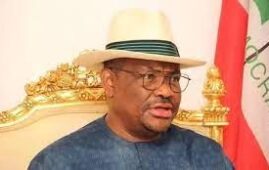China’s second centenary goal is to build China into a great modern socialist country that is prosperous, strong, democratic, culturally advanced, harmonious, and beautiful by the middle of the century. Promoting democracy, as China defines it, is an important part of the plan. Chinese President Xi Jinping pointed out that democracy is a common value of humanity and an ideal that has always been cherished by the Communist Party of China (CPC) and the Chinese people. What is this kind of democracy?
At present, under the leadership of the CPC, China states that it is developing people’s democracy throughout the whole process, expanding orderly political participation of the people, strengthening legal protection of human rights, and ensuring that the people enjoy extensive rights and freedoms in accordance with the law.
Whole-process people’s democracy is said to enable the role of the people — who, according to CPC theory, are masters of the country — to be better reflected in the country’s political and social life. To promote Whole-process people’s democracy, the CPC adheres to and improves the system of people’s congresses. While exercising their rights through certain kinds of elections, the people also participate in extensive consultations in various ways before and during policy decisions on major issues concerning the country’s reform, development and stability as well as on issues concerning their own interests. For example, the process of preparing the annual reports on the work of the Chinese government solicits opinions and suggestions from government officials, experts, scholars and people from all walks of life. These documents take months to draft, and many proposed changes are made through deliberation.
The Chinese People’s Political Consultative Conference (CPPCC) is playing an increasingly important role in consultative democracy. CPPCC members come from all walks of life with professional knowledge and social influence. Deliberative democracy in China enriches the forms, expands the channels and enhances the connotation of democracy.
Some people in western and other countries have misconceptions about the CPC, partly because China’s political system differs from that of countries with multiple parties and regular elections. There are no identical political systems in the world, nor is there a model political system applicable to all countries. In fact, all political systems have trade-offs.
As China’s ruling party, the CPC states that it represents the interests of all Chinese people, which it distinguishes from multi-party systems, where political parties represent only a segment of the electorate. That is why the CPC has a higher obligation to improve the living standards of all Chinese people. This involves reform, the rule of law, government transparency, public participation in governance, promoting democracy and freedom, and safeguarding human rights — all of which, the CPC states, it is striving to achieve. The CPC’s sense of mission and governance capability can be seen in China’s fight against COVID-19 and eradication of absolute poverty. I argue that the common reason why China won these two battles was the leadership and organizational ability of the CPC.
Of course, the CPC doesn’t stop there. China has set a broader and longer-term goal of achieving common prosperity. This overarching policy driver is the CPC’s firm commitment to the Chinese people. In pursuit of this goal, China will have to continue to adhere to reform and opening-up and constantly improve various institutions. Whole-process people’s democracy, fully implemented under the leadership of the CPC, is an essential element in ensuring that development is for the people, by the people, and shared by the people.
(The author is the winner of the China Reform Friendship Medal and president of The Kuhn Foundation)










Leave a Comment